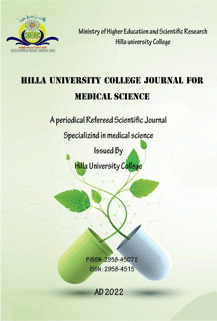Abstract
Several factors contribute to insufcient vaccination, including lack of awareness of its importance and issues related
to both demand and supply. This study aimed to assess mothers’ attitudes and practices toward child and maternal
vaccination, as well as the association of potential risk factors.
Method: A descriptive cross-sectional study was conducted between January 20 and July 31, 2024, at Jiblah University
Hospital.
Results: A total of 300 mothers participated in the study. Of these, 38% were aged between 16–25 years, 60.7% had
2–3 children, and 13.3% were literate. The attitude score among mothers was 92% (275 out of 300), and the practice score
was 93% (280). There was a signicant association between residence, monthly family income, and total score of mothers’
practices toward child vaccination, with p-values of 0.014 and 0.005, respectively. However, no signicant association was
found between mothers’ attitudes toward child and maternal vaccination and their socio-demographic factors (p > 0.05).
Conclusion: Despite a highly positive attitude and good practices toward children’s vaccination, there were gaps in
attitudes and practices concerning maternal vaccination. Mothers demonstrated limited awareness of the susceptibility
of pregnant women to diseases like in uenza, tetanus, and whooping cough.
to both demand and supply. This study aimed to assess mothers’ attitudes and practices toward child and maternal
vaccination, as well as the association of potential risk factors.
Method: A descriptive cross-sectional study was conducted between January 20 and July 31, 2024, at Jiblah University
Hospital.
Results: A total of 300 mothers participated in the study. Of these, 38% were aged between 16–25 years, 60.7% had
2–3 children, and 13.3% were literate. The attitude score among mothers was 92% (275 out of 300), and the practice score
was 93% (280). There was a signicant association between residence, monthly family income, and total score of mothers’
practices toward child vaccination, with p-values of 0.014 and 0.005, respectively. However, no signicant association was
found between mothers’ attitudes toward child and maternal vaccination and their socio-demographic factors (p > 0.05).
Conclusion: Despite a highly positive attitude and good practices toward children’s vaccination, there were gaps in
attitudes and practices concerning maternal vaccination. Mothers demonstrated limited awareness of the susceptibility
of pregnant women to diseases like in uenza, tetanus, and whooping cough.
Keywords
Attitude
children
mothers
Practice
Pregnancy
vaccination
Yemen
